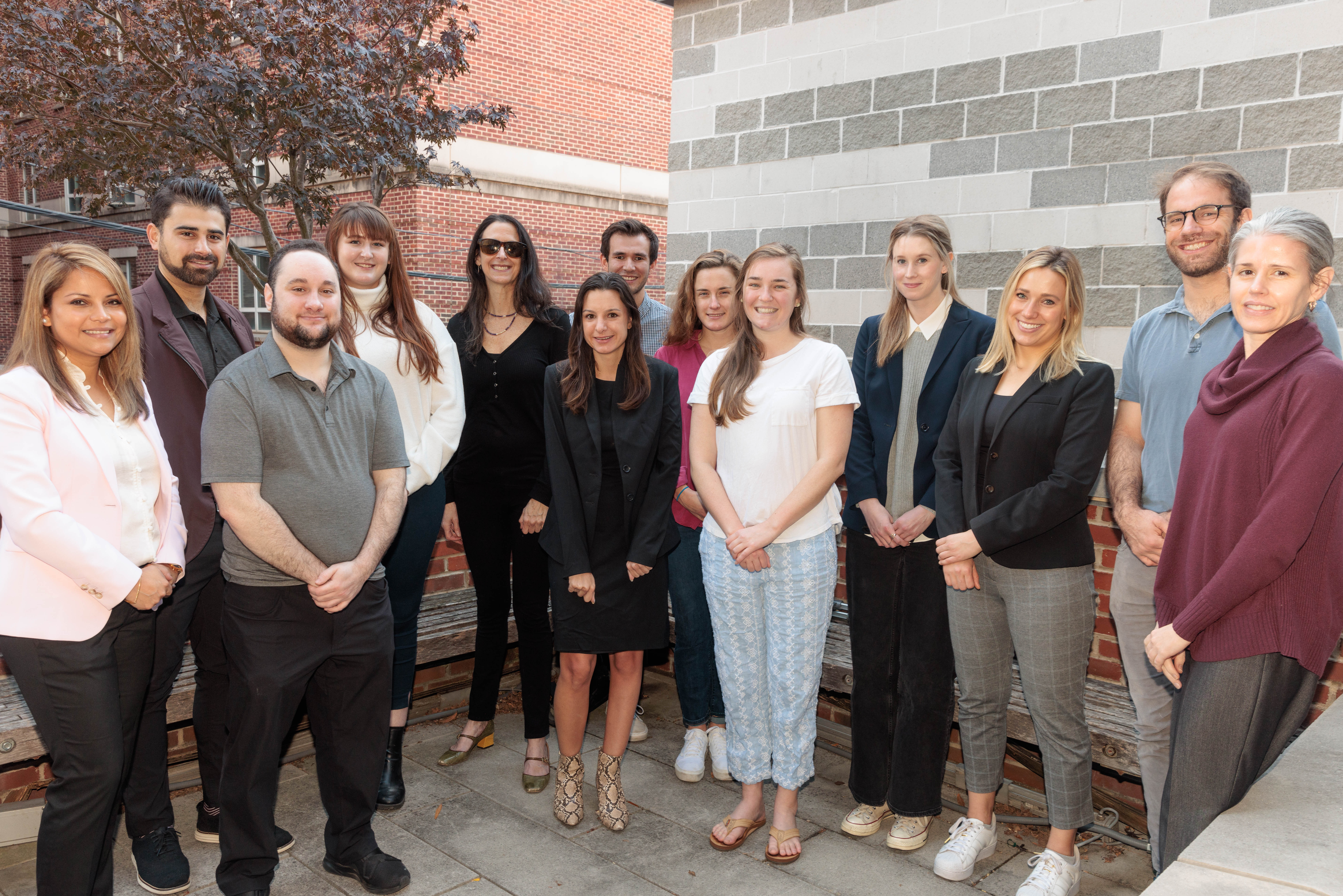The Family Justice Litigation Clinic (“FJLC”), directed by Associate Dean Laurie Kohn and co-taught by Daniel Bousquet and Karen Barker Marcou, has developed multiple projects to help potential litigants overcome barriers to accessing justice. What began as an informal partnership with D.C. Superior Court and local law schools in response to the Court’s March 2020 closure, has grown into multiple projects to serve vulnerable litigants. Dean Kohn launched the Virtual Mediation Project and Law School Service Assistance Project after a series of discussions highlighting where the interests of the courts, litigants, and clinics aligned. Each project helps create opportunities for law students interested in meaningful client-counseling opportunities, reduce the docket backlog at D.C. Superior Court, and improve long-term, equitable, and compassionate access to justice.
Domestic Violence Survivor Intake Hotline
Within days of the Pandemic shut-down Dean Laurie Kohn, in collaboration with the domestic violence and family law clinics at The Catholic University of America, and Georgetown University Law Center, launched a domestic violence hotline which was staffed by law students who drafted and filed petitions for protection orders on behalf of domestic violence survivors. With the Court’s intake centers closed, this hotline became the only avenue for domestic violence survivors to seek emergency legal assistance.
Virtual Mediation Project
In September 2020, Dean Kohn launched a Virtual Mediation Project in collaboration with the D.C. Superior Court with support from colleagues at the Catholic University of America Law School’s Families and the Law Clinic. The Virtual Mediation Project provides compressed shuttle mediation services to pro se litigants in D.C.’s Family Court. These services were offered in D.C. Superior Court prior to the Pandemic shutdown for litigants who filed domestic relations cases such as divorce, custody, or child support. Student attorneys in the FJLC had long served as mediators in the live program and received the training and skills to serve as mediators. In Fall 2020, the Program moved to a virtual platform. Each semester, the FJLC receives dozens of referrals from D.C. Superior Court judges. The Virtual Mediation Project has proved to be mutually beneficial to FJLC and litigants. The project helps the Court by reducing case backlog, giving litigants the opportunity to resolve cases without a lengthy adversarial process, and allowing students to develop mediation skills.
As Anne Grace Martin (Class of ’22) reflected, “I liked getting to work on mediation cases because you get a very quick view of a case. Rather than spending a semester with a case, you get the case docket and go in with a plan and a willingness to think outside the box. What you and your partner can do in the two-hour window can really bring about change for the parties involved.”
Law School Service Assistance Project
In June 2021, Dean Laurie Kohn launched the Law School Service Assistance Project which has supported more than 100 litigants since its inception.
The Service Assistance Project grew out of conversations with judges in D.C. Superior Court, who lamented the large number of cases that are dismissed due to lack of service of process. While service has been a chronic impediment to pro se litigants, the Pandemic has enhanced the challenges of service and decreased the ability of litigants to access support from the courts. Without service of process – which provides notice to opposing parties– cases cannot proceed through the justice system. Ultimately, without effective service, cases must be dismissed.
To address this barrier to justice, Dean Kohn worked with the Court to establish the Service Assistance Project. When parties in domestic relations cases appear in court and have not accomplished service, judges continue the cases and issue orders referring the plaintiffs to the Service Assistance Project. The Court provides the FJLC all relevant paperwork, pleadings, orders, and contact information for litigants. FJLC student attorneys walk through every step of service with referred parties, provide them with information, and assist them with filing the appropriate paperwork. Students work with litigants until service is accomplished.
By providing litigants with the information and support needed to help them successfully accomplish service of process, FJLC student attorneys serve as the bridge for plaintiffs who, without the necessary resources, information, or familiarity with electronic service of process technology, would not otherwise be able to pursue their family law cases.


